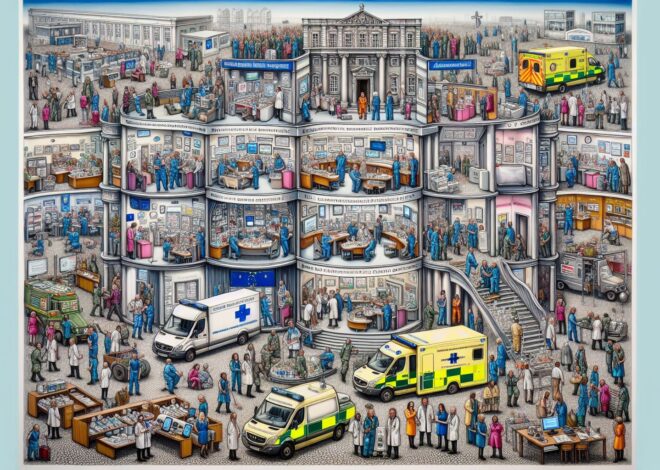
Ensuring the Preparedness and Response of European Health Systems
In the face of a global health crisis, the preparedness and response of European health systems have been put to the test. Health professionals, policymakers, and concerned citizens have all been integral in navigating the challenges presented by the outbreak of a pandemic. It is paramount that we all work together to ensure the resilience and adaptability of our healthcare systems in the face of future threats.
Health Professionals:
Health professionals are on the front lines of the battle against the current health crisis. Their dedication, expertise, and tireless work have been crucial in managing the outbreak and caring for those affected. As the situation continues to evolve, it is essential that health professionals remain vigilant, well-equipped, and informed about the latest developments and best practices in dealing with the pandemic.
Moreover, there is a need for ongoing training and support for healthcare workers to ensure their physical and mental well-being during these challenging times. It is also important for health professionals to collaborate and communicate effectively with their colleagues, both within and across healthcare settings, to optimize the delivery of care and resources.
Policymakers:
Policymakers play a critical role in shaping the response of European health systems to public health emergencies. They are responsible for making strategic decisions, allocating resources, and implementing measures to safeguard the population’s health and well-being. In times of crisis, policymakers must act swiftly, decisively, and transparently to mitigate the impact of the outbreak and protect vulnerable populations.
Furthermore, policymakers should prioritize investments in healthcare infrastructure, technology, and workforce capacity to enhance the resilience and preparedness of European health systems for future emergencies. They should also engage with relevant stakeholders, including health professionals, researchers, and the public, to gather input, foster collaboration, and align efforts towards a common goal of improving health outcomes.
Concerned Citizens:
Concerned citizens play a crucial role in supporting the response of European health systems to public health emergencies. By following public health guidelines, staying informed about the latest developments, and seeking medical advice when necessary, citizens can help reduce the spread of the virus and alleviate the burden on healthcare providers. It is also important for citizens to practice good hygiene, exercise social responsibility, and show solidarity with those affected by the outbreak.
Moreover, citizens can contribute to community resilience by volunteering, donating supplies, or offering support to vulnerable individuals in their neighborhoods. By coming together as a society, we can overcome the challenges posed by the pandemic and emerge stronger and more united in the face of adversity.
Conclusion:
In conclusion, the preparedness and response of European health systems to public health emergencies require a collective effort from health professionals, policymakers, and concerned citizens. By working together, sharing knowledge, and leveraging resources effectively, we can strengthen the resilience and adaptability of our healthcare systems in the face of future threats. Let us stand united in our commitment to protecting the health and well-being of our communities, now and in the future.



